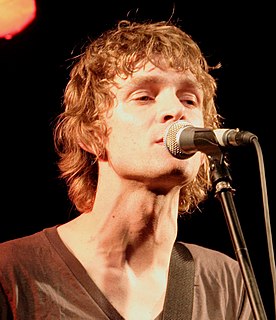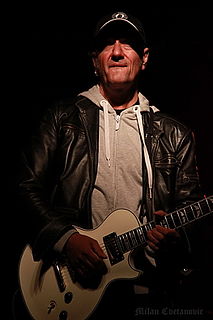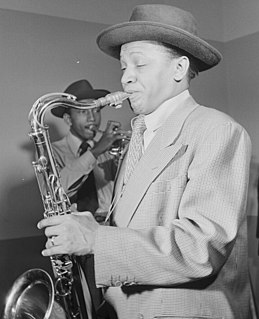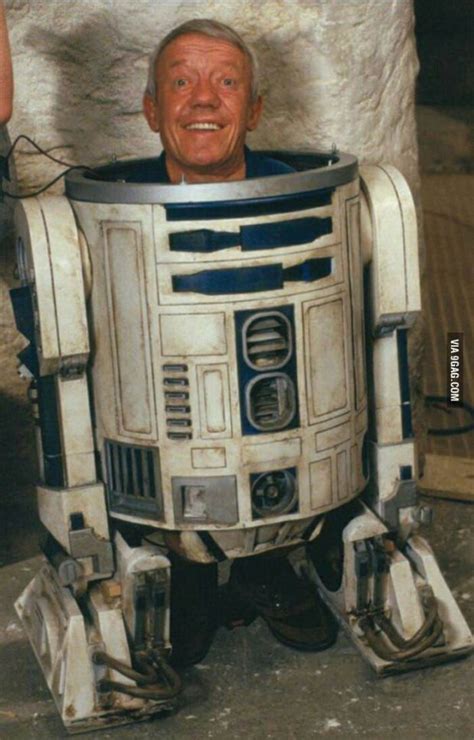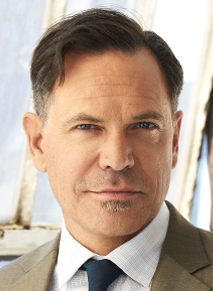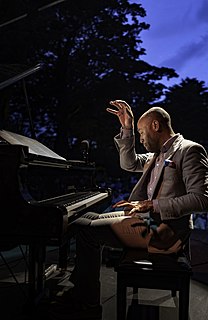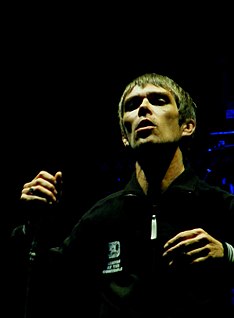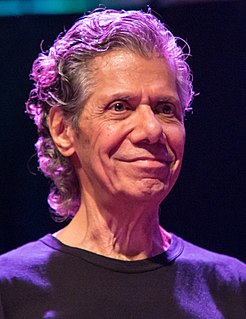A Quote by Pat Metheny
I met Gary (Burton) at the Wichita Jazz Festival when I was 18 -- he was one of my favorite musicians and I got to play a few tunes with him there. Shortly after that, I joined his band, which was the equivalent of joining the Beatles for me! He was, and still is, one of the greatest musicians I have ever been lucky enough to be around.
Related Quotes
Being a part of a band is easier to brainstorm, and it's fun - you're encouraged and inspired by the others. In this band, it's especially that way for me, because they're my favorite musicians - they've been my favorite musicians for so long, and I get to play with them now. A lot of times onstage, I'm overcome with admiration or something, which also means that you need to step up, you need to really bear down to match the level of musicianship or artistry. It's really challenging.
I visited New York in '63, intending to move there, but I noticed that what I valued about jazz was being discarded. I ran into `out-to-lunch' free jazz, and the notion that groove was old-fashioned. All around the United States, I could see jazz becoming linear, a horn-player's world. It made me realize that we were not jazz musicians; we were territory musicians in love with all forms of African-American music. All of the musicians I loved were territory musicians, deeply into blues and gospel as well as jazz.
I have a theory that musicians recognize each other and if they are destined to collaborate together they will. Mainly, they recognize each other according to the class they belong to. If they are punk-rocker kids from the neighborhood, they are going form a band. If they happen to be musicians that are going to play in pubs and restaurants, they are going to recognize each other, form a band and play together. If it's about musicians that are playing jazz and are going to jazz festivals, for e.g., then they are going to meet and work together.
In New Orleans, people are still influenced by one another. You got these bands that play every week on Frenchmen Street, and on their breaks, they might go see the reggae band that's right next door. You might get the musicians from the reggae band to sit in with the brass musicians. Everyone is having fun.
For me, let's keep jazz as folk music. Let's not make jazz classical music. Let's keep it as street music, as people's everyday-life music. Let's see jazz musicians continue to use the materials, the tools, the spirit of the actual time that they're living in, as what they build their lives as musicians around.
My grandfather, Arthur Baskerville, he played and still plays a little bit piano and trombone, and so when I was a kid, I always heard jazz around the house, but I also went to his gigs, whether it be a Saturday brunch in my hometown Columbus, Ohio. We'd go and hear him play with some of the local musicians.
My dad was all about music. He was a musician, leading a band when I was born. His band was active all through the 40s. He'd started it in the late 20s and 30s. According to the scrapbook, his band was doing quite well around the Boston area. During the Depression they were on radio. It was a jazz-oriented band. He was a trumpet player, and he wrote and arranged for the band. He taught me how to play the piano and read music, and taught me what he knew of standard tunes and so forth. It was a fantastic way to come up in music.

